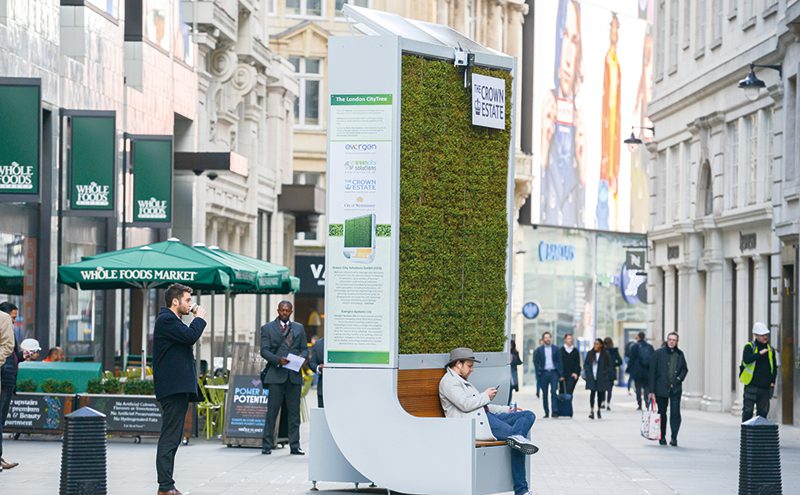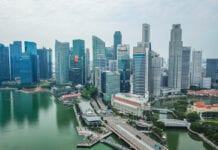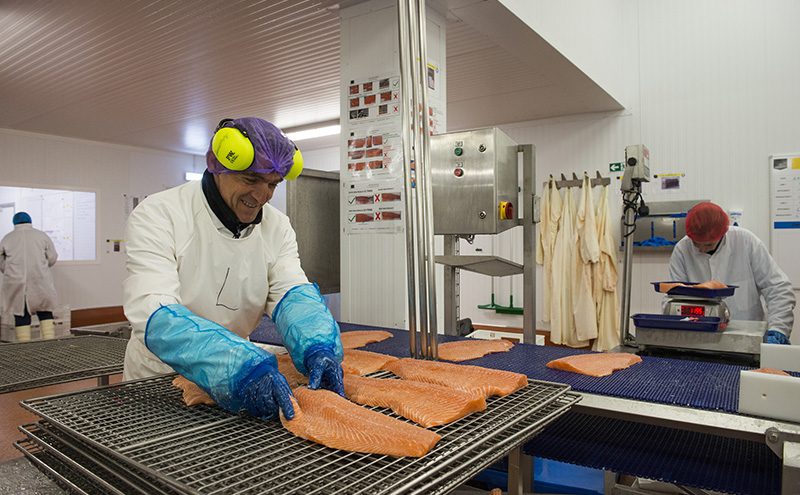Newcastle and London are the latest UK cities to experiment with moss-impregnated benches that appear to have the ability to filter out pollutants like NOx from the surrounding air.
Seemingly the brainchild of Dresden based start-up firm Green City Solutions, and launched in January 2017, the CityTree employs a number of mosses, selected for their ability to thrive in the urban environment.
Mosses are an uneasy match with cities, given their requirement for constant shade and moisture. But the CityTree is designed to accommodate this.
Green City Solutions claims the system can remove pollutants like NOx and particulates from the neighbouring area by up to 30%.
The CityTree is available in the UK from Evergen Systems, a firm that has been installing solar power, electricity storage and energy management systems since 2010. Each one costs £17,600, according to Wired, costs that it may be possible to partially recoup through advertising.
Glasgow invested in a couple of the CityTrees in June 2017, which are to remain in place until December 2018. And there seems to be impetus to provide more in Scotland. SNP councillor Ciaran McRae has seemingly filed a motion to instruct council officers to look at the feasibility of siting the trees in places where “immediate improvements in air quality are deemed necessary”.
Other European cities to have them include Berlin, Paris, Amsterdam and Oslo. And on 16 March one was installed near Piccadily Circus in London.
The first one in England was unveiled in Newcastle on 14 March. An initiative driven by Northumbrian Water Group (NWG), the firm reached an agreement with Newcastle City Council to situate the moss wall structure at the Haymarket, near the city’s bus interchange and busy main roads.
Occupying 3.5m2 of floorspace, and standing at around 4m tall, each cuboidal wall of irrigated moss seemingly carries out the air-cleaning duty that would normally require 275 trees, in 1% of the space, according to Evergen. Particulate matter in the size range 0.1µm – 10µm is extracted from air by the moss, where bacteria digests it. The moss, in turn, digests the bacteria.
The CityTree is self-powering via solar panels, and also includes a built-in nutrient tank and irrigation system – the structure collects and redistributes rainwater. Other built-in features include a Wi-Fi beacon, and sensors that collect data from the plants and the surrounding area.








